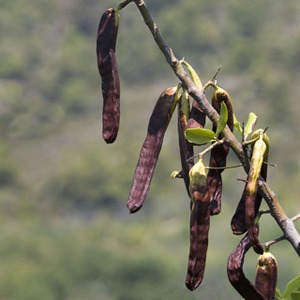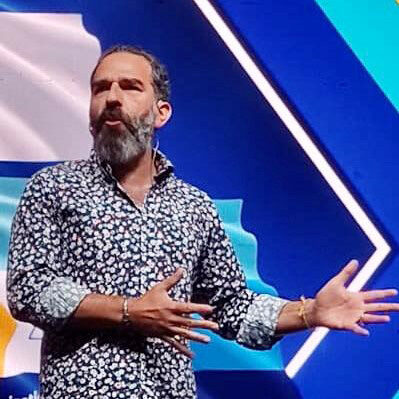
English Followed by the Hebrew
ב”ה
שבת תשובה, פרשת וילך תשפ“ב
הימים האחרונים של משה רבנו הם מרגשים, ומעלים מחשבות לגבי המסע של כל אחד מאיתנו. משה מסביר לעם ישראל:”… בֶּן-מֵאָה וְעֶשְׂרִים שָׁנָה אָנֹכִי הַיּוֹם–לֹא-אוּכַל עוֹד לָצֵאת וְלָבוֹא; וַאלוקים אָמַר אֵלַי, לֹא תַעֲבֹר אֶת-הַיַּרְדֵּן הַזֶּה.”
אף על פי זה שמשה הוביל את בני ישראל מעבדות לחירות, הדריך את עם ישראל ארבעים שנה אל תוך מדבר סיני, השתתף והיה השחקן המרכזי בקבלת לוחות הברית, ועוד נתן את כל חייו לכל צרכי העם, ובכל זאת לא זכה לחצות את נהר הירדן ולא גילה את חלומות אבותינו ואמותינו.
אחד המסרים שעורר עניין בפרשה הזו, היא עשייה למען העתיד, כמו בהאגדה של חוני, האיש ועץ החרוב:
יום אחד היה איש צדיק ושמו חוני המעגל. חוני שכב לו מתחת לעץ, וראה איש עם גלעיני עץ חרוב בידו. חוני שאל את האיש “מה אתה עושה עם גלעיני עץ חרוב?” “אני פה כדי לנטוע את גלעיני עץ החרוב האלה.” אמר האיש. “לנטוע עץ חרוב?” תהה חוני, “אינך יודע שלוקח 70 שנה עד שעץ חרובים גדל? באמת נראה לך שאתה תזכה לראות את עץ החרובים במלואו?” “לא,” ענה לו האיש, “אני נוטע את העץ כדי שהצאצאים שלי יוכלו ליהנות מפרותיו”. מתוך הסיפור עולה הכלל שתוצאות המעשים שלנו לאו דוקא מתגלים בהווה, אלא גם בעתיד. כמוכן סיפורו של בינימין זאב הרצל חוזה המדינה, מרטין לותר קינג, ועוד. לפעמים התוצעה של העשייה הושג במקום ובזמן אחר.
הרב טרפון במסכת אבות לימד: “לא עליך המלאכה לגמור ולא אתה בין חורין להיבטל ממנה”.
העולם המודרני רגיל לתוצאות מהירות, אך לדברים שקצת יותר חשובים בחיים, קצת יותר משמעותיים בחיים, לוקח זמן, ולא תמיד אנחנו ראויים לחוות את התוצאות של המעשים שלנו – אך – לכל אחד מאיתנו יש את היכולת להשפעה אין סופית.
בכניסתו של שבת תשובה יש לכל אחד ואחת מאינתו הזדמנות לעסוק בחשבון נפש, במחשבות עמוקות, ומתוך ההתבוננות לצאת עם הבנה ברורה יותר ולשאול את עצמנו: מי אני? ומה אני עושה פה?
גמר כתיבה וחתימה טובה.
שבת שלום – עם ישראל חי.
Parashat VaYelech (Deuteronomy/D’varim 31:1-30), 2021/5782
The last days of Moses are intense, urging us to consider our own journeys in life. Moses explains to the people of Israel: “… a hundred and twenty years old I stand today – I can no longer come and go; and Gd said to me, ‘I will not pass through this year.’ Even though Moses led the children of Israel from slavery to freedom, guided the people of Israel the Sinai wilderness for 40 years, was an integral in delivering 10 Commandments, and gave his life to all the needs of the people, yet he did not merit crossing Jordan River into the promised land.
One of the messages that arouse consideration in this story, is that our work – the actions we take – are often meant to be realized in the future, as it is learned through the legend of Honi, the man and the carob tree:
One day a righteous man named Honi HaMa’agal lay under a tree and saw a man with carob trees in his hand. Honi asked the man “What are you doing with carob trees?” “I’m here to plant those carob trees.” Said the man. “Plant a carob tree?” Honi wondered, “Don’t you know it takes 70 years for a carob tree to grow? Do you really think you’ll reap the benefits of your labor and enjoy the frutis of the carob tree?” “No,” the man replied, “I plant the tree so that my descendants can enjoy its fruits.” From the story emerges the principle that the impact of our actions are not always revealed in the present, the ripple effect can reach far out into the future. Similar to the efforts of Benjamin Zeev Herzl, father visionary of the State of Israel and modern Zionism, so too Dr. Martin Luther King, and others. Sometimes the results of our action are fully realized in a different place and time, and sometimes we don’t even have the opportunity to see our ideas through.
Rabbi Tarfon in Tractate Avot taught: “It is not incumbent upon you to complete the work, but neither are you at liberty to desist from it.”
The modern world is accustomed to quick results, but things that are a little more important in life, a little more meaningful in life, take time, and we do not always witness the impact of our actions – however – our action indeed have the capacity for infinite influence.
As we welcome this Shabbat of Teshuvah, preceding Yom Kippur, each and every one of us has the opportunity to engage in self-reflection, deep thoughts, and through this process achieve a clearer understanding, perhaps asking ourselves: Who am I? And what am I doing here?
May we all be signed in the Book of Life for good health, joy and purpose.
Shabbat Shalom – Am Yisrael Chai!


Nice to tead you, sincdI don’t see you anymore!